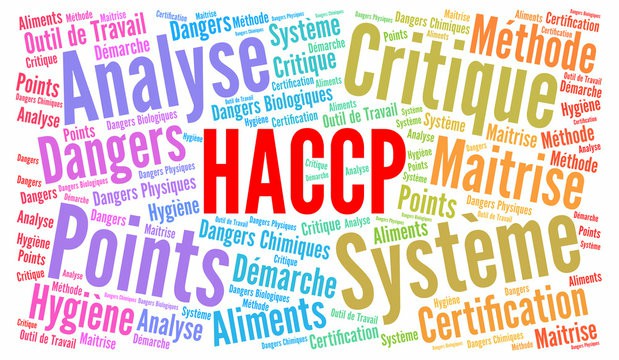


 349,500 Offered Certificates
349,500 Offered Certificates
 24/7 Online Training
24/7 Online Training
 Money Back Guarantee
Money Back Guarantee
 Fully Accredited Courses
Fully Accredited Courses

Created at: 26-02-2025 12:44
In the bustling food industry of Ireland, from the trendy restaurants in Dublin to the thriving catering services in Galway, ensuring the safety of food products is paramount. HACCP, or Hazard Analysis and Critical Control Points, is an internationally recognized method that helps businesses establish comprehensive food safety protocols. In this article, we delve into why HACCP training is not just beneficial but vital for food safety compliance in Ireland.
HACCP is a systematic approach to food safety that helps identify, evaluate, and control hazards that could pose risks to food safety. By implementing HACCP principles, businesses can ensure a proactive approach to managing food safety throughout the supply chain. It encompasses the following seven principles:
In Ireland, strict food safety regulations necessitate that food businesses, including restaurants, catering services, and food manufacturers, comply with HACCP principles. Here are some key reasons why investing in HACCP training is crucial for food businesses:
The Food Safety Authority of Ireland (FSAI) mandates HACCP certification as a part of the legal requirements for food businesses. Failure to comply with these regulations can lead to significant penalties, including fines and closure. HACCP training equips your staff with the knowledge to ensure compliance, thus safeguarding your business reputation.
Implementing HACCP training helps identify potential food safety risks and hazards in your food handling processes. By understanding how to control these risks, businesses can prevent food contamination, protecting customers and maintaining their health. Especially in cities like Cork and Waterford, where tourism is essential, ensuring food safety directly impacts consumer trust and brand longevity.
Every food business has a duty to protect public health. HACCP training helps businesses realize their responsibility in preventing foodborne illnesses, ensuring that products are safe for consumption. In light of recent global health challenges, maintaining high food safety standards is more important than ever.
Achieving HACCP certification signals to customers that your business prioritizes food safety and quality. This certification can enhance your business's reputation, attracting more customers and increasing sales, especially in competitive markets like Dublin and Belfast.
Accusations of foodborne illness can seriously harm a business. HACCP training mitigates this liability by ensuring effective control of safety measures. By documenting the steps taken to ensure food safety, you can provide evidence of compliance in case of any disputes.
Securing HACCP certification involves several steps that can be summarized as follows:
Both online and in-person HACCP training offer unique advantages. Online courses provide flexibility and can be accessed at any time, making them suitable for businesses with varying schedules. In contrast, in-person training fosters direct interaction and hands-on experience, which can be beneficial for practical understanding. Consider your team’s learning preferences, business structure, and operational demands when deciding which option best suits your needs. Explore HACCP training courses to find the best fit.
Even with the best intentions, businesses can fall prey to common HACCP mistakes:
HACCP training is essential for any food business striving to ensure food safety compliance and protect public health in Ireland. As a restaurant owner, caterer, or food manufacturer operating in Dublin, Cork, Galway, Limerick, Waterford, or Belfast, it’s critical to invest in HACCP certification. Not only does it help you meet legal requirements, but it also enhances your business’s reputation and builds customer trust.
Ready to elevate your food safety practices? Enroll in our HACCP & Food Safety training courses today. For inquiries, contact us at [email protected].